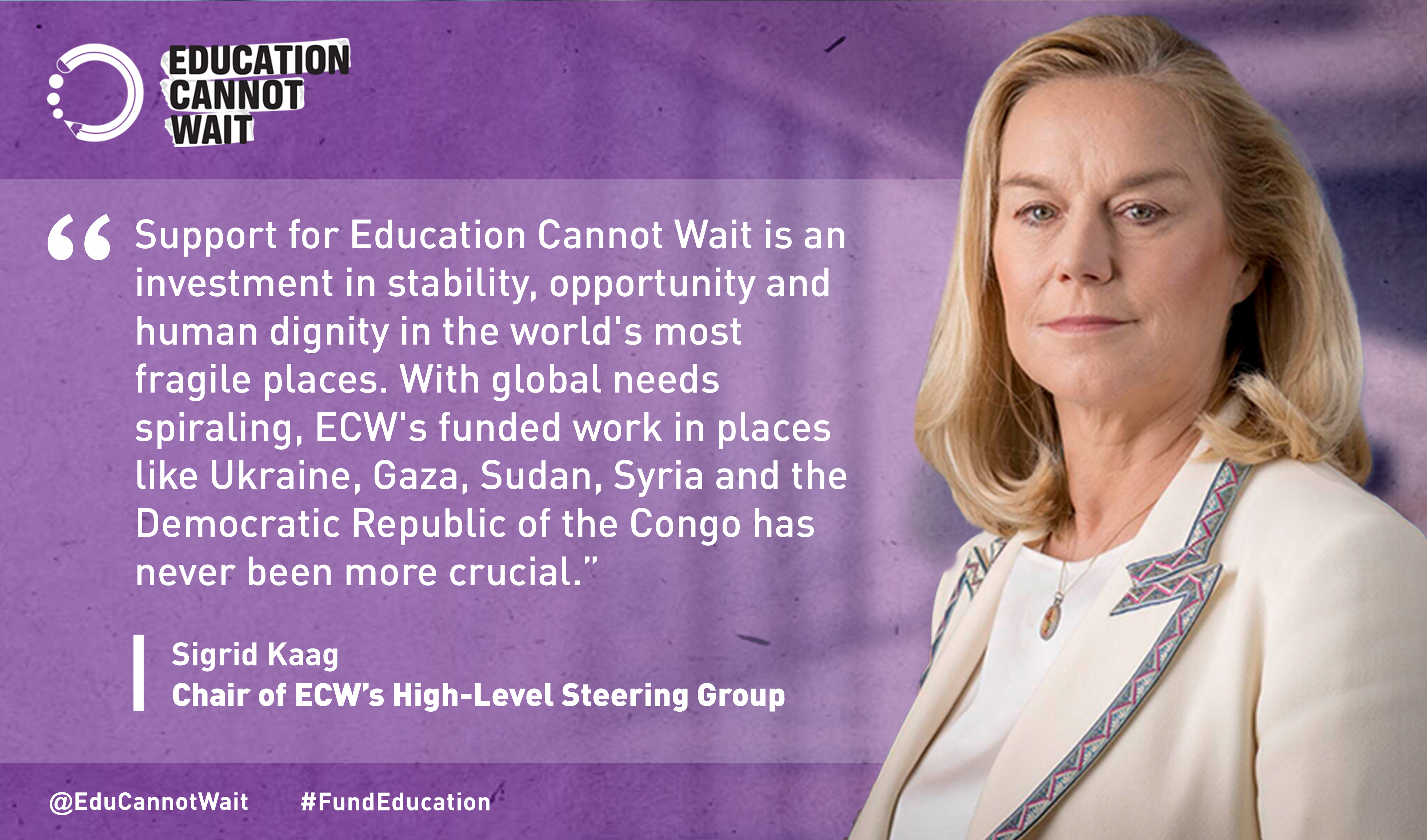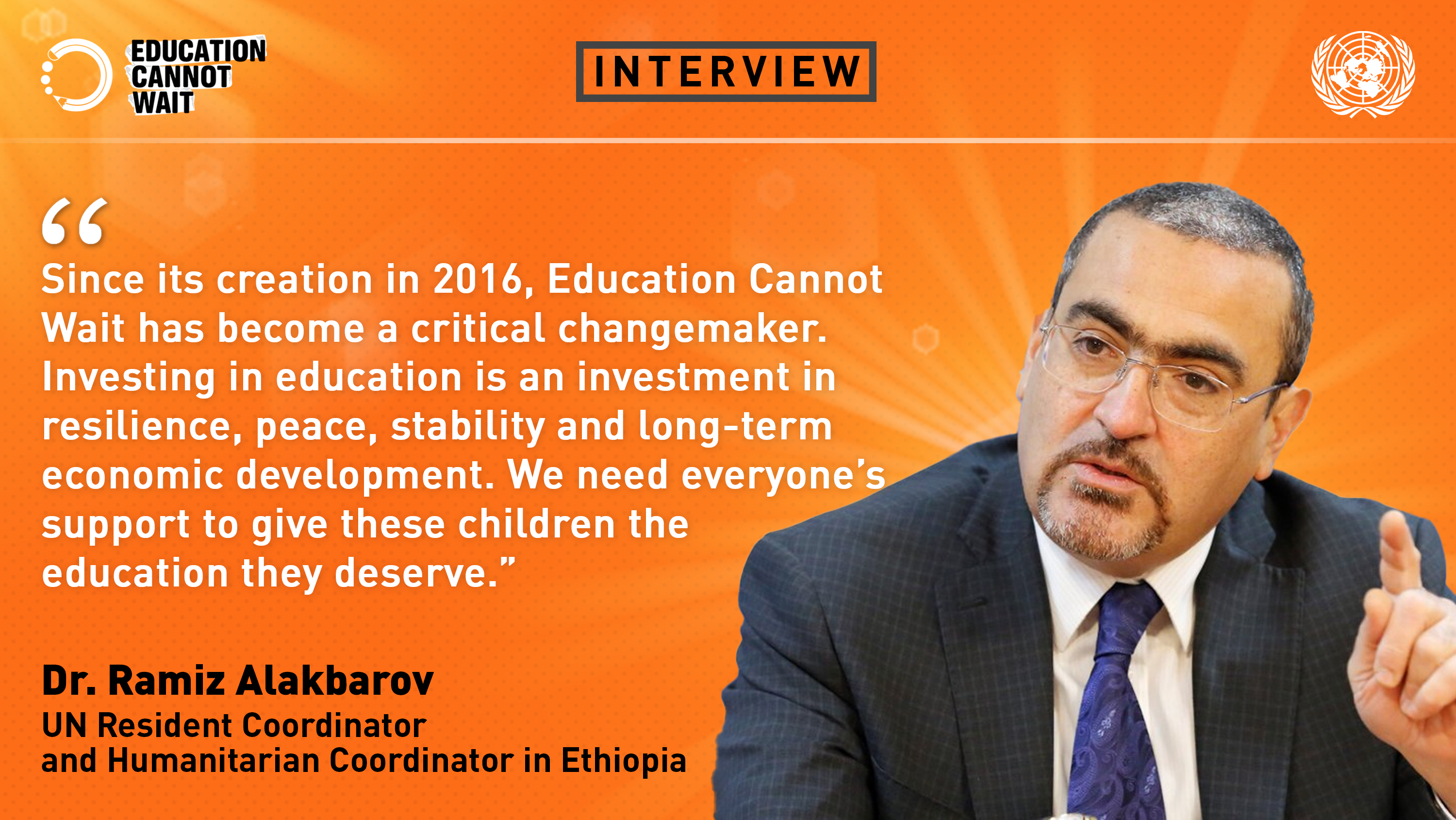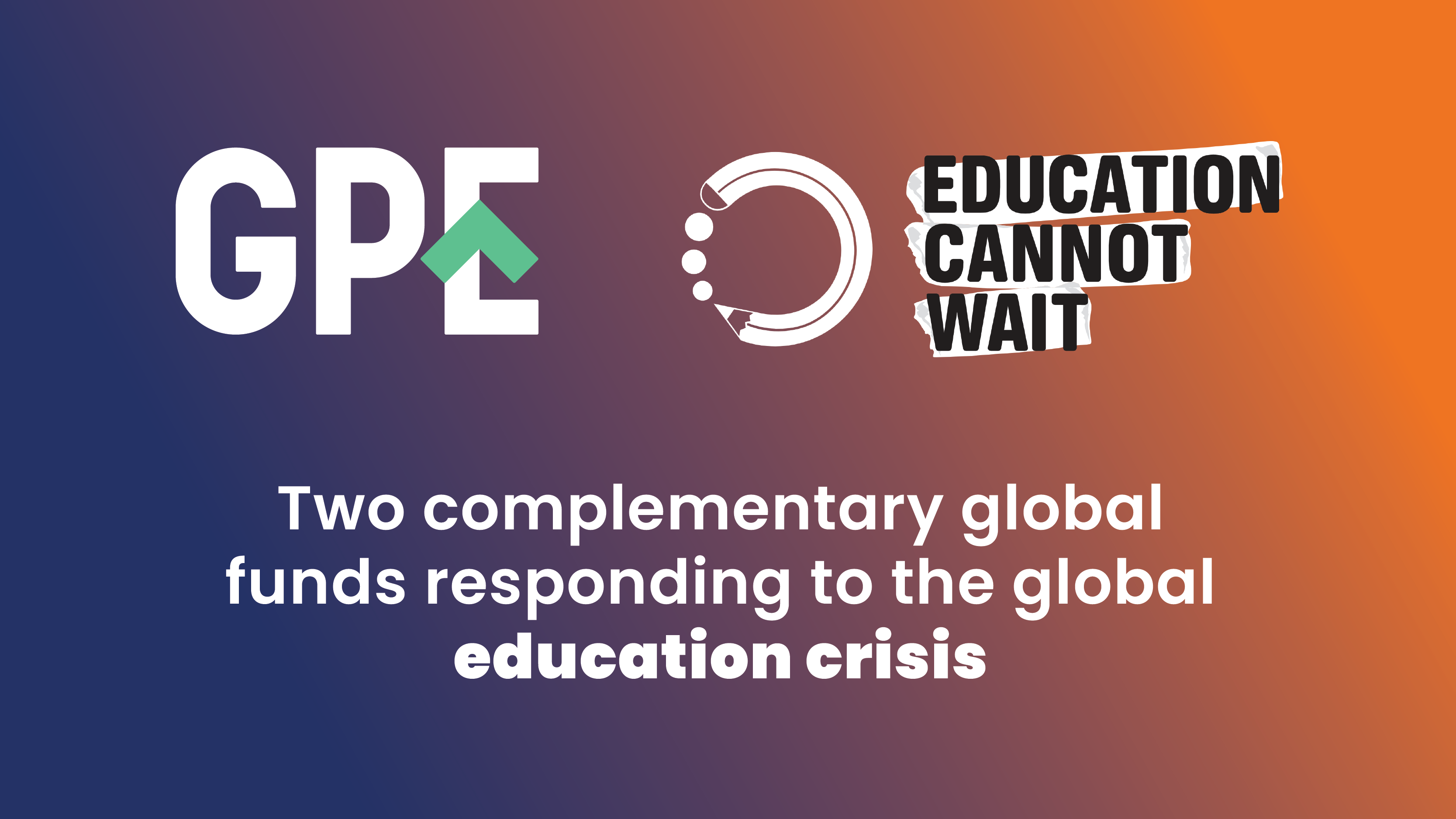Education Cannot Wait Interviews LEGO Foundation CEO John Goodwin the Lego Foundation Is Education Cannot Wait’s Largest Private Sector Donor.

John Goodwin joined the LEGO Foundation as CEO in April 2017 to pursue a career where he could combine his business skills with his passion for philanthropy and driving positive social impact.
The LEGO Foundation is dedicated to influencing parents, teachers and policy makers to adopt learning through play as the most powerful means for children to acquire the broad suite of skills needed to thrive in today’s world – and to provide the evidence and advocacy to support it. The LEGO Foundation is Education Cannot Wait’s largest private sector donor. With a US$27.5 million contribution to date, it is paving the way for public-private partnerships “to promote quality learning, holistic skills, and protection of children who are the most marginalized and need support.”
Prior to being appointed CEO of the LEGO Foundation, Mr. Goodwin held a position as Executive Vice President and Chief Financial Officer of the LEGO Group with responsibilities comprising finance, corporate IT, corporate social responsibility, external relations, corporate business services, legal affairs and procurement.
Before joining the LEGO Group, John served as a President in Procter & Gamble where he was responsible for leading a variety of global businesses covering pet nutrition, electrical appliances and food snacks. Earlier in his career, he conducted a wide range of finance leadership positions in the company, including mergers and acquisitions, corporate finance, new business ventures, investor relations and strategic development.
Mr. Goodwin holds a 1St class degree in Mathematical Engineering from the University of Loughborough and is a Fellow of the Chartered Accountants in England and Wales. He resides in York, England and is married to Elizabeth Goodwin, a former primary school teacher, with whom he has three grown children.

Education Cannot Wait: The LEGO Foundation decided to invest in education for those left furthest behind in emergencies and protracted crisis. ECW’s uncompromising commitment to speed, quality and results very much resembles the attitude of private sector mentality and approach. Why did you decide to support and invest in ECW’s global movement?
John Goodwin: The LEGO Foundation forged our partnership with Education Cannot Wait (ECW) to ensure that children in conflicts and crises get psychosocial and developmental support, by securing Learning Through Play in the classrooms of refugees and their host communities. Through this partnership, we aim to promote quality learning, holistic skills, and protection of children who are the most marginalised and need support.
Through the partnership with ECW, we are investing in capacity building on learning through play pedagogies of their staff and/or grantees, inspiring other donors who are interested in prioritising quality early childhood development and primary education for children, and supporting a research agenda and knowledge sharing around learning through play.
This partnership also enables us to raise the agenda in public platforms by talking about the importance of early learning – which is currently massively underfunded in the humanitarian sector – that includes Learning through Play for broader skills development, promoting it with other actors and host country governments.

Education Cannot Wait: What is your advice to private sector or philanthropic foundations who also want to help prioritize education for the 75 million children and youth in conflicts and forced displacement? What advice would you give to private sector partners or foundations who are still concerned about how their funding can make the greatest impact?
John Goodwin: The private sector has the resources and influence to positively impact lives of children in difficult situations. My advice is to work with partners to leverage the collective power of influence, reach and knowledge. At the LEGO Foundation we believe that we are stronger together and if we can leverage each other’s resources and expertise, we can deliver a higher impact for children around the world.
I would also advise to prioritise quality learning outcomes and developing breadth of skills in children. While the COVID-19 pandemic has resulted in some challenges with access to education opportunities, we should not take a step back from the current efforts to improve the quality of education that is provided to these children. We should avoid falling into the trap of pushing narrow traditional education outcomes for the sake of hitting targets, but instead to think about how we support these children’s well-being through a holistic approach that can help them deal with trauma stressors caused by crisis situations AND set them on a learning trajectory for the future.
Education Cannot Wait: The LEGO Foundation is a strong driver of early childhood education and learning through play. What do you think are the most important achievements so far in the LEGO Foundation’s relentless advocacy for early childhood education and learning through play in emergency and crisis settings?
John Goodwin: In the last few years, the LEGO Foundation has built its humanitarian portfolio, with our first humanitarian grant Play to Learn, to a consortium of partners led by Sesame Workshop. This was followed by the second grant, PlayMatters, to a consortium of partners led by International Rescue Committee (IRC). Play to Learn seeks to establish play-based, early childhood development (ECD) programming as an essential component of all humanitarian responses, and validating this through the specific contexts of the Rohingya and Syrian refugee crises in Bangladesh, and Jordan and Lebanon respectively. PlayMatters will improve education outcomes for approximately 800,000 children and reach approximately 10,000 pre-primary and primary school teachers and education personnel and 170,000 primary caregivers in Ethiopia, Uganda and Tanzania, who will receive training to engage in learning through play with children who have faced adversities. Over the course of both projects, we can see some concrete outcomes such as direct ECD interventions for parents and children in three different countries, and the initial learnings from the implementation.
The LEGO Foundation is working in close collaboration with key partners to advocate for more investments and actions towards early childhood development and education in emergencies. We have been engaging with Moving Minds Alliance, other philanthropic organisations, and governments to scale up coverage, quality and financing to support young children and families affected by crisis and displacement, where we bring the important elements of learning through play into the efforts of this alliance. We took a similar approach with our recent grant to INEE to scale up their activities. We also learn from the collaborative efforts from other programmes of the LEGO Foundation and other partners that are developing and researching quality ECD interventions in non-crisis settings.
We know that resilience building and socio-emotional learning are key for children in this world of uncertainty, and even more for those affected by conflicts and crises. We believe that learning through play is one of the answers to help them develop these skills. We are launching the Socio-Emotional Learning Massive Open Online Course with Future Learn to explore how adults can support children to cope with change, stress and anxiety. Even though its approach is broader, it is applicable to humanitarian contexts. These are some important achievements for the LEGO Foundation that certainly encourage us to deepen our efforts towards our humanitarian portfolio.

Education Cannot Wait: The COVID-19 pandemic has had a global impact on all areas of virtually everyone’s life. How does the LEGO Foundation see the long-term effect on education by the COVID-19 pandemic, particularly for crisis-affected children and youth who were already impacted by armed conflicts, forced displacement and climate-induced disasters prior to the pandemic?
John Goodwin: The COVID-19 pandemic has increased the risk of donors and governments deprioritising investment in education. Underfunded areas like early learning could be even more affected. This has the potential of severely impacting all children, but children who have been impacted by conflicts and crises are even more vulnerable. Children in crisis settings not only need quality education opportunities but also ways to address their own stress and socio-emotional wellbeing. The LEGO Foundation strongly believes that learning through play-based pedagogy can help to address these challenges.
Education Cannot Wait: The LEGO Foundation recently announced memoranda of understanding (MOUs) with both USAID and the government of Denmark. Can you explain the role of these strategic partnership in realizing the vision of the LEGO Foundation?
John Goodwin: The LEGO Foundation firmly believes that the only way to achieve significant positive impact for children at scale is to engage in strategic partnerships with NGOs, civil society, academic institutions, and more importantly partnerships with governments. We work with, and support governments who are keen on improving the delivery of child-centred play-based quality education. Partners such as the Ministry of Foreign Affairs of Denmark and USAID are working very closely with education systems around the world, and with our support they can reach even more children with the power of learning through play, and help strengthen local systems to deliver quality play-based education to children. Working together and leveraging each other’s networks and expertise can secure a higher impact for children around the world.
But this is not the first time the LEGO Foundation has entered into partnerships with governments, and not all our public-private partnerships are with high income/donor countries. Back in 2010, the LEGO Foundation started a collaboration with the Ukrainian Ministry of Education, with a focus on bringing learning through play to young children in kindergartens across Ukraine. By training teachers and donating play materials, practice towards early learning has shifted from a traditional chalk-and-talk approach to one where children benefit from play-based learning tapping into their innate ability to learn. At our 10th anniversary of collaboration in Ukraine, we can celebrate that learning through play is now part of everyday life for around 1 million children between 2-10 years old and 50,000 teachers in 16,000 public primary schools and 250 kindergartens.
We have similar partnerships with the Ministry of Basic Education of South Africa, Secretariat of Public Health and the Secretariat of Public Education of Education of Mexico, the Government of Colombia, and the Ministry of Education in Ghana.

Education Cannot Wait: Where do you see the LEGO Foundation’s commitment to education, especially pre-primary education, for children affected by conflicts and forced displacement in 10 years from now?
John Goodwin: In 10 years, we would like to see a better understanding by the key stakeholders of the complete “learning journey” of a child – from birth to adulthood. The investments currently being made by the LEGO Foundation are geared to make programmes scalable and sustainable. We believe that in 10 years these programmes and the learning from them, would help other governments and organisations to reach even more children who might find themselves in difficult situations with development interventions that will help the children get back on a positive learning journey. Although, we hope that in 10 years, there would be no child if a crisis situation and therefore there will not be a need for such programmes.

Education Cannot Wait: We’d love to learn a bit more about you on a personal level. Learning through play is crucial, and learning to read is also key to one’s continual growth throughout life. Could you tell us what are the three books that have influenced you the most (or that you’d recommend to others to read), and why?
John Goodwin: ‘Influence the most’ is tricky as it is somewhat time/life-stage dependent. I also read a lot. So let me go down the path of three books I would recommend in light of what I am currently doing at the LEGO Foundation
· ‘All I Really Need to Know I Learned in Kindergarten.’ Robert Fulghum. Great read to remind everyone of what is most important in life and the essential nature of early childhood development. One quote that I think is really pertinent today is “It doesn’t matter what you say you believe – it only matters what you do.” In the LEGO Foundation we are nurturing a bias to doing (while constantly learning).
· ‘Range.’ David Epstein. Wonderful research into the power of diversity of thought, both at the individual and the collective level. Has been a strong influencer in my own thinking on how to make better decisions and how to not get locked into a narrow agenda.
· ‘Lean Impact.’ Ann Mei Chang. I love seeing how breakthrough approaches in one area of life can be transferred across into different areas to achieve new breakthroughs. This book has helped me think through how the LEGO Foundation can fundamentally rethink its approach to achieving more systemic impact in the areas of early childhood development and primary education. We are still working on it, and with it!

Education Cannot Wait: Any final words of advice as we work together and move forward to reach Sustainable Development Goal 4 – inclusive quality education – for those left furthest behind?
John Goodwin: There is an urgent need to rethink education, by adopting a more child-centered rather than a teacher-centered approach. And this change is possible by adopting a learning through play approach to education which addresses the individual needs of each learner, and keep our focus on life-long skills, and not just on access to education. We have to build education systems around the agency of the child and make sure we close the inequality gaps, which is unfortunately growing right now, and more so for the most difficult to reach children. I would stress again that partnerships are key to drive this change at scale.



